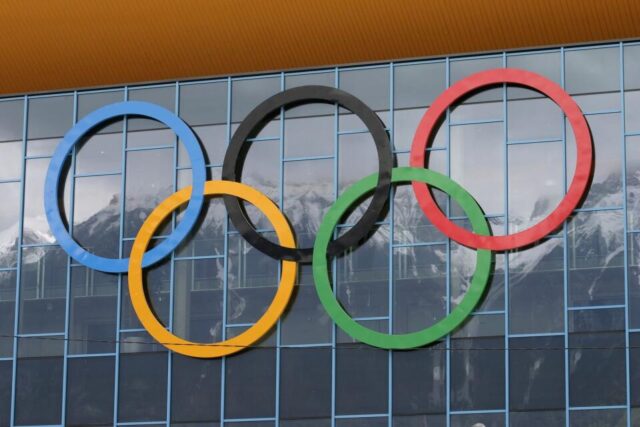The International Olympic Committee still has not decided whether it will allow Russia or Belarus to compete at the 2024 Summer Olympics in Paris, but it took a step toward doing so Tuesday by providing guidance for allowing athletes from those countries to take part in international sporting events, including Olympic qualifiers.
THE INTERNATIONAL Olympic Committee still has not decided whether it will allow Russia or Belarus to compete at the 2024 Summer Olympics in Paris, but it took a step toward doing so Tuesday by providing guidance for allowing athletes from those countries to take part in international sporting events, including Olympic qualifiers.
The guidance, approved by the IOC executive board and announced by President Thomas Bach, says global sports federations can allow Russian and Belarusian athletes to compete as long as they do so as individual, neutral athletes who will not wear uniforms from their countries and have not expressed support for Russia’s war with Ukraine. The guidance allows athletes to have coaches and other support personnel with them but does not permit Russian or Belarusian teams.
During a video conference with media Tuesday, Bach and other IOC leaders stressed that the guidance is not official IOC policy but instead a framework that each sport’s governing body can follow to allow athletes from Russia and Belarus to take part in its events.
Some Russian athletes can soon return to international sports, although their status for next year's Paris Olympics is still up in the air. https://t.co/AWGfsJScBT
— The Associated Press (@AP) March 28, 2023
The IOC has stood by its February 2022 recommendation that Russian and Belarusian athletes be barred from international competition, but since late last year it has been seeking a way to allow them to return, potentially at the Paris Games and the 2026 Winter Olympics in Milan-Cortina. The IOC’s efforts have been met with resistance from Ukraine President Volodymyr Zelensky and many in the international sports community who argue that Russia and Belarus should be banned from the Games.
Many qualifying events for the Paris Games start this spring, so Russian and Belarusian athletes would have to be allowed in those competitions for them to have a chance at making the Olympics. The IOC guidance provides that opening – if the individual sports federations choose to allow them. Last week, World Athletics voted to maintain its ban on athletes from Russia and Belarus. Conversely, the International Fencing Federation voted earlier in the month to allow fencers from those countries into its events.
The IOC’s guidance also gives its executives a chance to see how a policy allowing Russians and Belarusians to compete as neutral athletes might work at the Paris Olympics.
“We wanted to monitor the implementation of these recommendations … as long as possible … to be enabled to make an informed decision,” Bach said when asked when the IOC might make a final decision on Russian and Belarusian participation in Paris.
Olympic chiefs have been urged by five of Russia's neighbours to rule on Tuesday that all Russians should be blocked from competing at the Paris Games https://t.co/DqkvRF00R7
— Sky News (@SkyNews) March 28, 2023
Bach faced several pointed questions about the IOC’s refusal to have a policy for the Paris Olympics, including suggestions that the IOC is “kicking the can down the road” in hopes the war in Ukraine will end and a ban would be moot.
“No, we are not kicking it down the road, and we are not waiting because we would all like the war to end now,” Bach said.
The IOC’s guidance says that athletes connected to the Russian or Belarusian military or security agencies should not be allowed to compete. Athletes who make any statement in support of the war during the events – or at news conferences or on social media – should be banned, the IOC’s guidance notes.
The Washington Post








